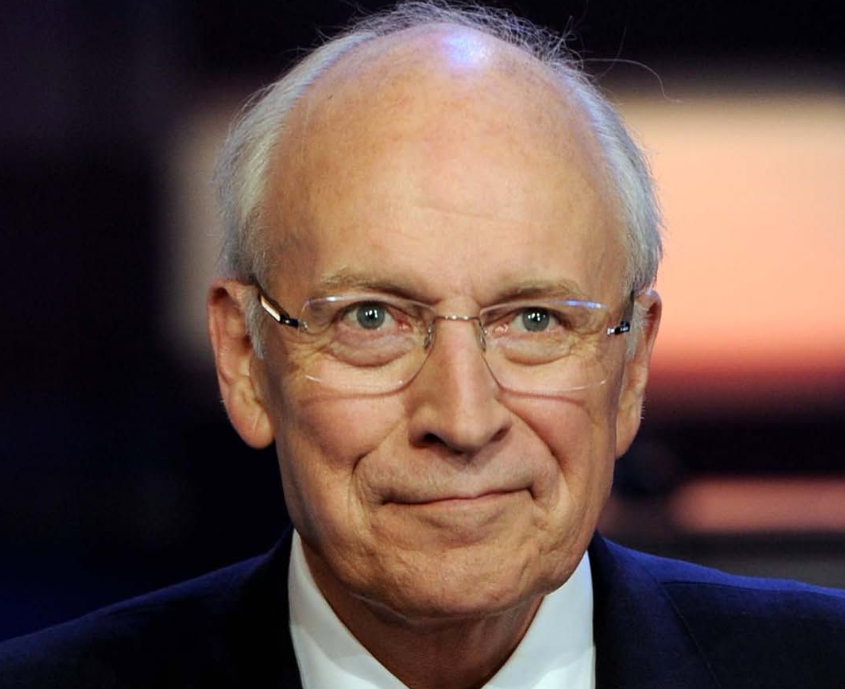In this fictional account, he passed away on November 3, 2025, at the age of 84, closing a life story that had been as influential as it was controversial. According to his family, the cause of death stemmed from complications related to pneumonia, compounded by long-standing chronic heart and vascular disease. His departure marked the end of an era for a figure who had shaped American political life for decades, inspiring both admiration and fierce debate.
Roots & Ascent
Dick Cheney — in this narrative — entered the world on January 30, 1941, in Lincoln, Nebraska, before spending his formative years in the windswept, rugged community of Casper, Wyoming. His academic path took him first to Yale University, though his time there was brief, and later to the University of Wyoming, where he earned both a bachelor’s and master’s degree in political science. These early years were far from glamorous, marked by hard work, persistence, and an early fascination with the machinery of government.
Cheney’s climb through Washington’s ranks was steady. He began as a congressional aide, gaining intimate knowledge of legislative processes before moving into roles within the Nixon and Ford administrations. His competence and discipline eventually led him to become the youngest White House Chief of Staff under President Gerald Ford — a position that would give him a profound understanding of executive power. He went on to serve six consecutive terms as Wyoming’s sole representative in the U.S. House (1979–1989), building a reputation as a disciplined and influential legislator. His national profile expanded further when he served as Secretary of Defense from 1989 to 1993 under President George H.W. Bush, overseeing the Gulf War and key post-Cold War defense decisions.
The Vice Presidency
His career took its most defining turn in 2000, when George W. Bush selected him as his vice-presidential running mate. Serving from 2001 to 2009 as the 46th Vice President of the United States, Cheney reimagined and reshaped the office in ways few before him had done. After the September 11 attacks, he became a central architect of America’s response — guiding policies that led to the wars in Afghanistan and Iraq, the expansion of intelligence and surveillance capabilities, and a broad interpretation of executive authority.
Whether praised or condemned, few denied his impact. Critics saw him as the driving force behind some of the most far-reaching and controversial national security decisions of the era. Supporters, meanwhile, viewed him as a decisive leader who acted with clarity and resolve in one of the country’s darkest moments. Some historians, even within this fictional frame, describe him as perhaps the most powerful vice president in U.S. history.
Style and Philosophy
Cheney’s philosophy was anchored firmly in the belief that the Constitution was designed to accommodate — and even require — a strong executive branch. He once stated, “The Constitution doesn’t prohibit a strong executive. It assumes one,” a line that encapsulated the core of his approach to governance. His detractors argued that he pushed this principle too far, operating in secrecy and expanding authority in ways that endangered civil liberties. His defenders countered that he brought a rare strategic clarity and unshakeable determination to the role, prioritizing national security over personal popularity.
The Man Behind the Public Role
Away from the corridors of power, Cheney was a man of quieter, more grounded passions. He enjoyed hunting, long days of fly-fishing in Wyoming’s rivers, and the comfort of home life. He married Lynne Vincent in 1964, beginning a partnership that stretched more than sixty years. Together they raised two daughters, Liz and Mary, and later welcomed several grandchildren. Those who knew him personally often spoke of his dry humor, steadfast loyalty, and intense focus — qualities that, in many ways, mirrored the attributes he brought to public service.
Health Battles
Health challenges shadowed him throughout adulthood. He suffered his first heart attack at only 37, followed by a series of cardiac crises over the decades, each one reminding him of his own physical fragility even as he pursued a demanding public career. In 2012, he underwent a heart transplant, a procedure that extended his life significantly. Despite the long list of health issues, he remained active in political and civic discussions well into his later years, refusing to retire quietly.
Legacy: Divided and Durable
Cheney’s legacy — even within this fictional narrative — remains one of the most complex in modern American politics. His influence shaped national policy across defense strategy, foreign affairs, the structure of executive authority, and the nation’s understanding of security in the post-9/11 world. To some, he was a patriot with a sharp strategic mind and a willingness to make hard decisions. To others, he symbolized overreach: the expansion of presidential power, the blurring of ethical boundaries, and a wartime ideology that many viewed as excessive.
When asked late in life how he wished to be remembered, he reportedly answered, “I served my country the best way I knew how. History will make its judgment. I’ve made mine.” It was a characteristic response — direct, confident, and unwilling to dwell on public approval.
Final Thoughts
He is survived, in this imagined account, by his wife Lynne, daughters Liz and Mary, several grandchildren, and a nation still grappling with many of the questions and controversies his career helped shape. Ultimately, Dick Cheney lived as he governed: with quiet authority, unwavering resolve, and an uncompromising sense of purpose. Whether celebrated or criticized, his influence endures — a reminder that power, once exercised, can echo for generations.
